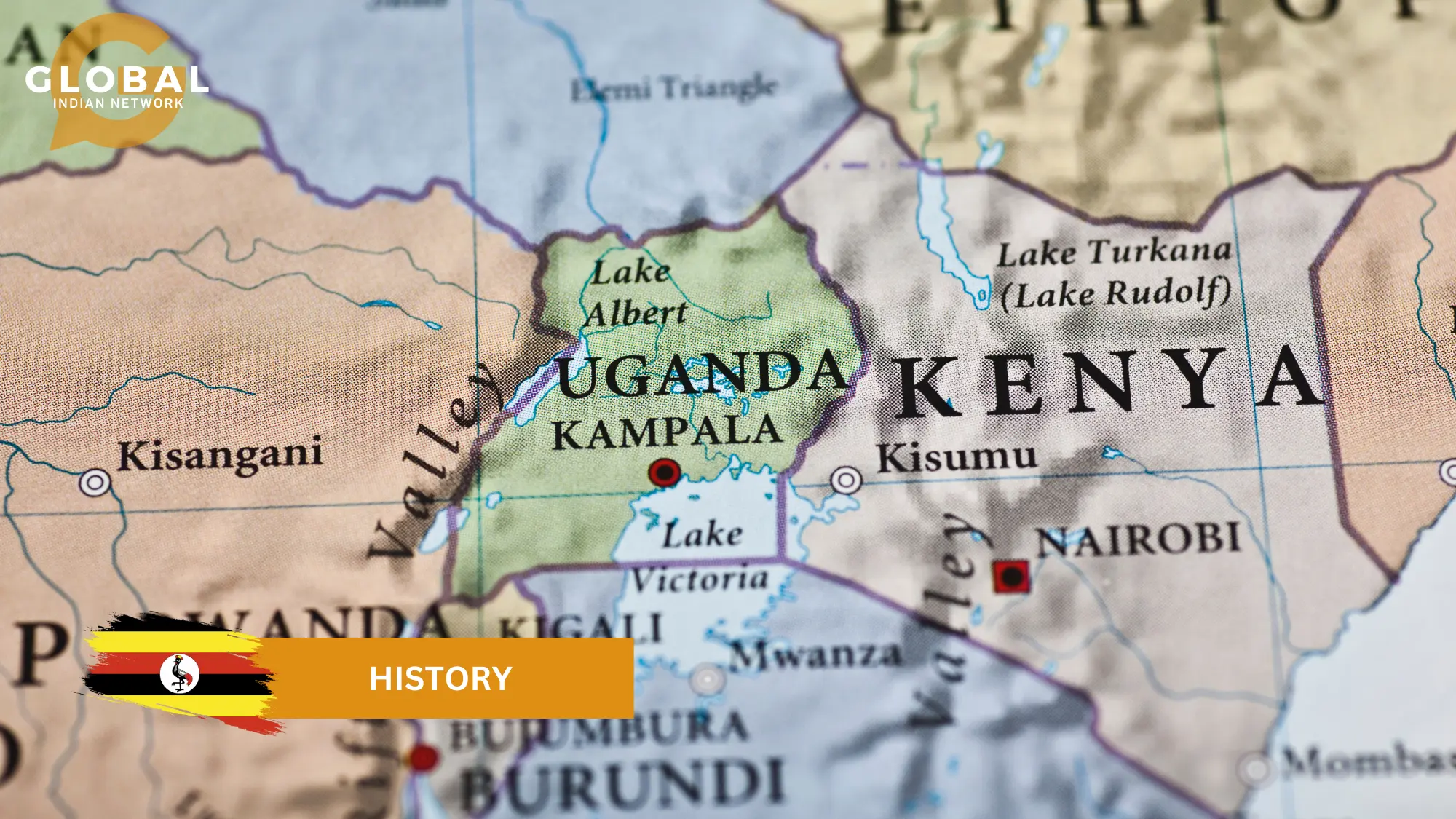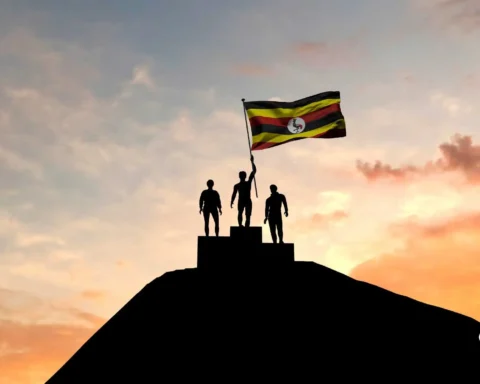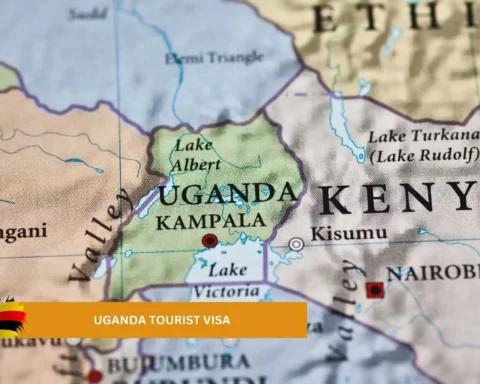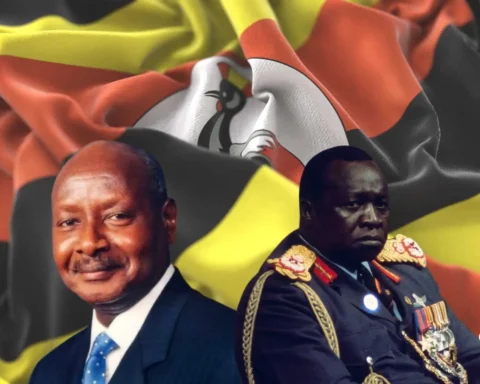Welcome to our exploration of Uganda's rich and diverse history, a captivating journey through time that sheds light on the nation's past, present, and future. This blog delves deep into the annals of Uganda's history, touching upon crucial milestones and events that have shaped this East African nation. This blog serves as your guide to better understand the history of Uganda. By delving into some historical pointers, we aim to provide you with a comprehensive narrative that informs and enlightens you, enabling you to appreciate the depth and diversity of Ugandan history and its profound impact on the nation's present and future. So, let's embark on this enlightening journey through Uganda's history together.
Table of Contents
The History of Uganda: Pre-Colonial Era
The pre-colonial era of Uganda is a chapter in its history characterized by the rich tapestry of indigenous cultures, societies, and civilizations. Long before European explorers arrived on its shores, the region that would become Uganda was inhabited by diverse ethnic groups, each with unique customs, languages, and governance structures.
Settlements and early civilizations around Lake Victoria, one of the largest freshwater lakes in the world, have a rich history dating back thousands of years. The region's earliest inhabitants established fishing communities along the lake's shores, relying on abundant fish stocks for sustenance. Over time, the Bantu migration from West Africa brought new agricultural knowledge and social structures to the area, leading to the emergence of agricultural communities.
Kingdoms and chiefdoms, such as the Kingdom of Buganda, played a pivotal role in shaping the cultural and political landscape of the broader Lake Victoria basin. The lake was a natural trade route, facilitating interactions and trade networks among different ethnic groups. The colonial era brought significant changes, with European powers exerting control, but post-independence efforts focused on modernization and development. Today, the Lake Victoria basin remains a culturally diverse and economically vital region, reflecting its complex history of indigenous traditions, colonial legacies, and contemporary progress.
The economy was often centred around agriculture, with staple crops like millet, sorghum, and yams forming the basis of sustenance. The people also traded with neighbouring regions, such as Eastern and Central Africa, exchanging goods such as ivory, salt, and copper. The pre-colonial era of Uganda was marked by a rich cultural heritage and various belief systems, with indigenous religions and animism prevalent. This period laid the foundation for the diverse and vibrant cultural mosaic that continues to define Uganda today.
Colonial Era
The colonial era in Uganda was a pivotal period that profoundly altered the nation's social, political, and economic landscape. Under British colonial rule, which began in the late 19th century, Uganda was incorporated into the British East Africa Company or Protectorate, marking the start of a period of profound transformation.
The British rule administration under Frederick Lugard introduced new systems of governance, including indirect rule, which relied on local chiefs to maintain authority. This approach had a lasting impact on Uganda's political structure. The economic history of the colonial era saw the expansion of cash crop cultivation, such as coffee and cotton, which were primarily exported to meet British demands. While these exports brought economic development, they also created dependency on a narrow range of commodities.
Socially, the colonial era significantly changed Uganda's demographics and cultural dynamics. Missionaries arrived, bringing Christianity, education, and westernization. This led to shifts in religious beliefs and the emergence of a Western-educated elite. At the same time, labour migration to support colonial economic activities disrupted traditional family structures.
The colonial legacy in Uganda left a complex and sometimes contentious inheritance, with aspects of both progress and enduring challenges. As Uganda moved towards independence in the early 1960s, the nation had to navigate the intricacies of a society transformed by colonialism, setting the stage for the post-colonial era and its unique challenges and opportunities.
Independence and Post-Colonial History of Uganda
Independence and the post-colonial era in Uganda marked a momentous transition in the nation's history, characterised by both optimism and complex challenges. Uganda achieved independence from the British government on October 9, 1962, under the leadership of Sir Edward Mutesa II, who became the first President of Uganda, and Milton Obote, the first Prime Minister.
The early post-colonial period saw a sense of national pride and hope for progress. Efforts were made to establish democratic institutions and foster economic development. However, political instability marred this optimism, with power struggles and ethnic tensions emerging as significant challenges.
One of the most tumultuous episodes in Uganda's post-colonial history was the rule of Idi Amin, who seized power in 1971. Amin's regime was marked by human rights abuses, economic turmoil, and the expulsion of the Asian Ugandan community, which significantly impacted the country's economy and social fabric.
In 1979, Amin was overthrown, leading to a period of political and economic recovery. Yoweri Museveni came to power in 1986, initiating a more stable and reform-oriented era. His government focused on restoring armed forces, implementing economic reforms, and stabilising the country.
Despite progress, it faced challenges, including political unrest, regional conflicts, and the persistence of poverty and inequality. The country embarked on a journey of economic growth and development, with improvements in education, healthcare, and infrastructure.
The post-colonial era is marked by a complex interplay of political, social, and economic dynamics. It is a testament to the Ugandan people's resilience and determination to shape their nation's future. Uganda's history since independence serves as a reminder of the enduring quest for stability, prosperity, and social justice as the country continues to grapple with contemporary issues and aspire to a brighter future.
Idi Amin's Regime
Idi Amin's regime in Uganda lasted from 1971 to 1979 was one of the darkest and most brutal chapters in the nation's history. Amin, a military officer, seized power in a coup, overthrowing President Milton Obote. His government power was marked by widespread human rights abuses, including extrajudicial killings, torture, and forced disappearances, leading to the deaths of tens of thousands of Ugandans. Amin's erratic and violent policies, such as the expulsion of the Asian Ugandan community in 1972, severely impacted the country's economy and social fabric. His regime's legacy of terror and instability left deep scars on Uganda, and it took years to rebuild the nation in the aftermath of his rule.
The Uganda-Tanzania War
The Uganda-Tanzania War, also known as the Uganda-Tanzania War of 1978-1979, was a conflict between Uganda and Tanzania. It began when Tanzanian forces, with the support of Ugandan exiles, invaded Uganda to overthrow President Idi Amin's regime. The war resulted in the fall of Amin's government in April 1979, and Tanzanian forces withdrew from Uganda. The conflict had significant humanitarian consequences, with widespread human rights abuses during Amin's rule and the war. After the war, Uganda underwent a period of political transition and rebuilding under Tanzanian-backed Ugandan factions.
Obote's Second Term and Civil Conflicts
Milton Obote's second term as Uganda's president, from 1980 to 1985, was marked by significant political turbulence and civil conflicts. After returning to power, Obote's government faced opposition from various political and armed groups. The most notable was the National Resistance Army (NRA), led by Yoweri Museveni, which sought to overthrow Obote's regime.
The NRA insurgency, which began in 1981, triggered a prolonged civil conflict that included significant human rights abuses and displacement of civilians. The conflict exacerbated Uganda's economic woes, disrupted infrastructure, and led to food shortages.
Obote's government also faced internal challenges, including factionalism within his party, the Uganda People's Congress (UPC). These divisions weakened his leadership and contributed to the overall instability in the country.
In 1985, Obote's government was toppled in another coup, ending his second presidential term. The subsequent years saw a transitional government and the eventual rise of Yoweri Museveni to power in 1986, which marked the beginning of a more stable period for Uganda.
Obote's second term and the civil conflicts of this era left deep scars with long-lasting effects on its political landscape, infrastructure, and social fabric.
Lord's Resistance Army (LRA)
The LRA, or Lord's Resistance Army, is a rebel group that operated in Uganda and neighbouring countries, primarily during the late 20th and early 21st centuries. Joseph Kony founded the LRA in the late 1980s to establish a theocratic government based on Kony's interpretation of the Ten Commandments. The group is notorious for its brutal tactics, including abducting children to serve as soldiers and committing widespread atrocities against civilians.
For over two decades, the LRA conducted a violent insurgency in northern Uganda, causing widespread displacement and suffering, and is considered a terrorist organization by the U.S. State Department. The conflict had devastating humanitarian consequences, including the displacement of millions of people and the abduction of tens of thousands of children.
The Ugandan Bush War
The Ugandan Bush War, also known as the National Resistance Army (NRA) rebellion, was a protracted conflict in Uganda from 1980 to 1986. Led by Yoweri Museveni, the NRA sought to overthrow the government of President Milton Obote and later Tito Okello. The war involving the Ugandan troops or army was characterised by guerrilla warfare tactics called Guerrilla Army and ended with the NRA capturing power in January 1986. Museveni became president, marking the start of his long tenure in office. The Bush War significantly impacted Uganda's political landscape and security forces and set the stage for post-conflict reconstruction and economic reforms.
The Era of Yoweri Museveni
The era of Yoweri Museveni in presidential elections in Uganda, which began in 1986 and continues to the present day, represents a significant chapter in the nation's history. Museveni's ascent to power marked a turning point in Uganda's political landscape, ending years of instability and civil conflict. His leadership has been characterised by efforts to stabilise the country, implement economic reforms, and restore security.
Under Museveni's rule, Uganda experienced relative stability in political parties and a reduction in the intensity of internal conflicts. His government implemented market-oriented economic policies that contributed to notable economic growth, particularly in sectors like agriculture and telecommunications.
Museveni's tenure also witnessed improvements in social indicators, including healthcare and education. However, challenges such as political repression, allegations of human rights record abuses, and concerns about democratic governance have been raised during his long rule.
The Ugandan government represents a complex period in the nation's history, marked by both progress and controversy. It highlights the enduring challenges of balancing political stability, economic development, and democratic principles in a diverse and evolving society.
Disease Outbreaks
It has faced several significant infectious disease outbreaks in its history. One notable outbreak was the HIV/AIDS epidemic, which gained prominence in the 1980s and 1990s. Uganda implemented a successful nationwide campaign to combat the spread of the virus, emphasizing prevention, awareness, and behavioural change, which resulted in a decline in HIV prevalence over the years.
In the 20th century, Uganda has grappled with outbreaks of diseases like the sickness epidemic, Ebola, which first appeared in the country in 2000 and later in 2019. These outbreaks prompted rapid response efforts, including quarantine measures and vaccination campaigns, to contain the spread of the virus and prevent widespread outbreaks.
Malaria remains endemic in Uganda, with outbreaks occurring regularly, particularly during the rainy season. The government has extensively controlled malaria through insecticide-treated bed nets, indoor residual spraying, and access to antimalarial drugs.
Outbreaks of diseases like cholera and Rift Valley fever have also occurred, often linked to inadequate sanitation and flooding during the rainy season. Health authorities have worked to improve sanitation and surveillance to prevent and manage these outbreaks.
Uganda's experience with infectious disease outbreaks underscores the importance of strong healthcare infrastructure, effective public health measures, and international collaboration in disease control and prevention.
Regional and International Relations
Uganda's regional and international relations have been crucial in shaping its foreign policy and diplomatic engagement. In the East African context, Uganda is a member of the East African Community (EAC), which fosters economic integration, trade, and cooperation among regional states. Bilaterally, Uganda has maintained stable relations with neighbouring countries like Kenya, Tanzania, South Sudan, and Rwanda.
On the international stage, Uganda has actively participated in peacekeeping missions as part of the United Nations (UN) and the African Union (AU), demonstrating its commitment to global security and stability. Additionally, Uganda has been involved in international partnerships for development, particularly with donor nations and organizations, to address economic and social challenges.
However, Uganda has also faced diplomatic tensions at times, such as disputes with neighbouring Rwanda and criticism over human rights issues. Navigating these regional and international relations is a dynamic aspect of present-day Uganda's foreign policy, as it seeks to balance its national interests with broader regional and global objectives.
Conclusion
The history of Uganda is a compelling narrative of resilience, transformation, and aspiration. From its pre-colonial civilizations and the impact of colonialism to the struggles for independence and periods of political turbulence, Uganda's history is a testament to the nation's enduring spirit. The post-independence era, marked by both progress and challenges, has seen Uganda emerge as a dynamic player in the East African region. As Uganda navigates its path to economic development and social progress, its rich historical tapestry shapes its identity and inspires its future. Uganda's story is one of complexity, diversity, and the ongoing quest for stability, prosperity, and unity.
FAQs
Who was Mobutu Sese Seko?
Mobutu Sese Seko was a Congolese political leader who ruled the country, formerly known as Zaire, for over three decades, from 1965 to 1997. He is known for his authoritarian regime, corruption, and economic mismanagement, which left a lasting impact on the Democratic Republic of the Congo.
What is Uganda famous for?
Uganda is famous for its stunning natural beauty, including diverse wildlife in national parks like Queen Elizabeth and Murchison Falls, and for being the "Pearl of Africa," a phrase coined by Winston Churchill to describe its scenic landscapes. Additionally, Uganda is known for its warm hospitality and rich cultural heritage.
What is the history of the name Uganda?
The name "Uganda" originates in the Buganda Kingdom, a powerful and influential kingdom in the region during the pre-colonial era. The British adopted the name, and it eventually became the name of the country when it gained independence in 1962.
What is the Anti-Homosexuality Bill?
The Anti-Homosexuality Bill of Uganda, introduced in 2009, sought to criminalize homosexual acts and impose severe penalties, including life imprisonment for certain offences. It generated significant controversy and international condemnation but was eventually nullified by the Ugandan Constitutional Court in 2014.










You are not right. I am assured. Let’s discuss. Write to me in PM, we will talk.
I confirm. And I have faced it.
I apologise, but, in my opinion, you are not right. Let’s discuss. Write to me in PM.
We can find out it?
Bravo, seems magnificent idea to me is
It is remarkable, very good piece
The word of honour.
[…] Uganda stemmed from a kingdom of the 19th century known as Buganda, which was located along the northern shore of Lake Victoria. Although Buganda was established as a British protectorate in 1894, it was never fully colonized. […]